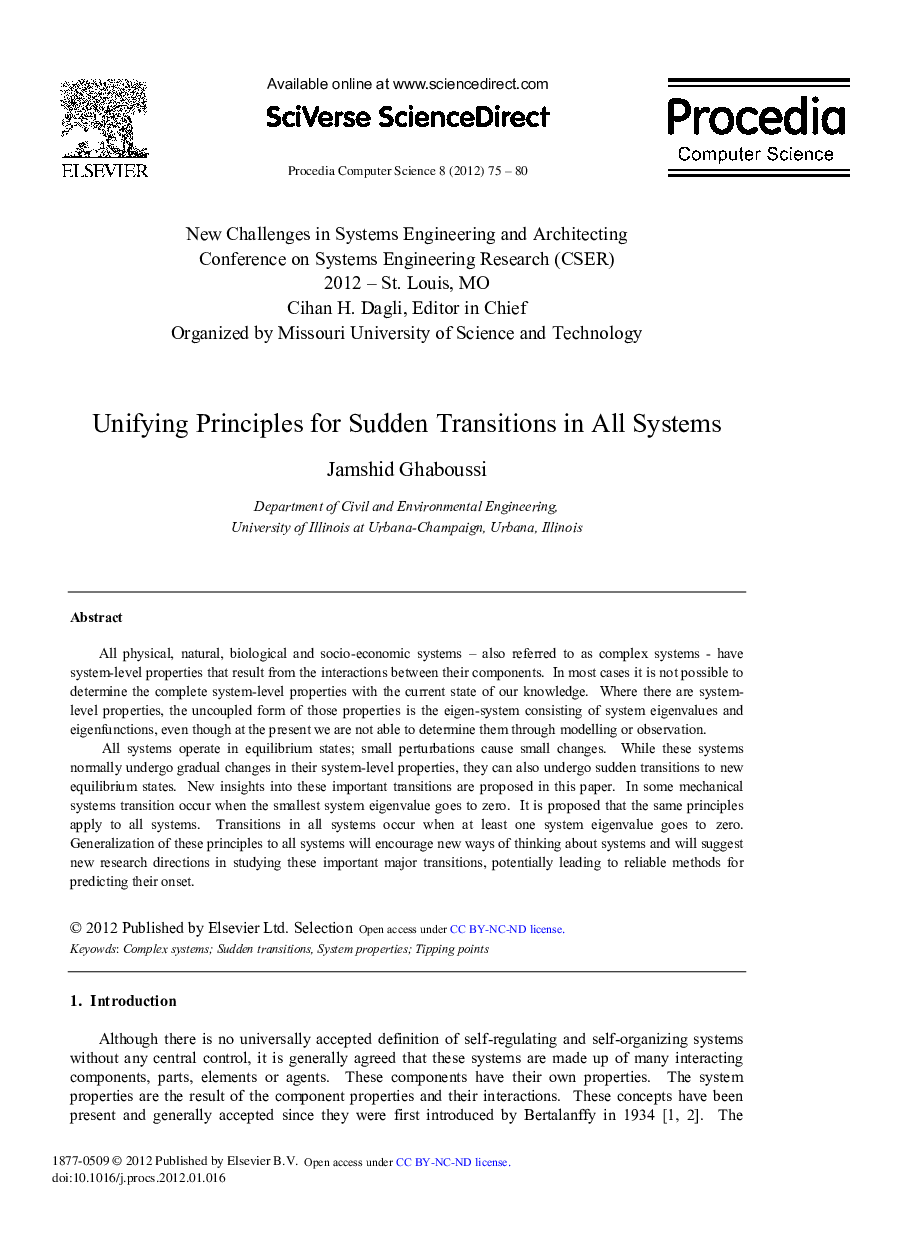| Article ID | Journal | Published Year | Pages | File Type |
|---|---|---|---|---|
| 488062 | Procedia Computer Science | 2012 | 6 Pages |
All physical, natural, biological and socio-economic systems – also referred to as complex systems - have system-level properties that result from the interactions between their components. In most cases it is not possible to determine the complete system-level properties with the current state of our knowledge. Where there are system-level properties, the uncoupled form of those properties is the eigen-system consisting of system eigenvalues and eigenfunctions, even though at the present we are not able to determine them through modelling or observation.All systems operate in equilibrium states; small perturbations cause small changes. While these systems normally undergo gradual changes in their system-level properties, they can also undergo sudden transitions to new equilibrium states. New insights into these important transitions are proposed in this paper. In some mechanical systems transition occur when the smallest system eigenvalue goes to zero. It is proposed that the same principles apply to all systems. Transitions in all systems occur when at least one system eigenvalue goes to zero. Generalization of these principles to all systems will encourage new ways of thinking about systems and will suggest new research directions in studying these important major transitions, potentially leading to reliable methods for predicting their onset.
